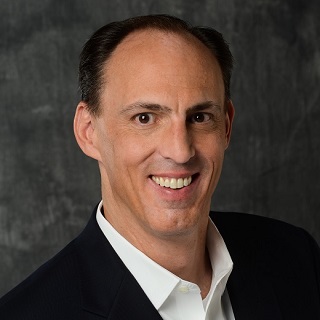Not-for-Profit Banking Industry Insights: Building an Effective Board
4/12/2023

Throughout my journey consulting institutions for higher education I have been blessed to work with several dynamic leaders.
One in particular, the president of a private university, has contributed tremendously to my understanding of not-for-profit leadership. Consultants and industry participants alike know that the proper construct and operation of a governing board are vital to an institution’s success.In fact, during the critical years following ‘The Great Recession,’ the credit rating agencies cited ‘the strength of governance’ as being the single greatest differentiator to a successful recovery. In the evaluation of credit metrics, the Management & Governance criteria is certainly the least quantifiable, often garnering a ‘plus’ or ‘minus’ designation versus a numeric value. However, board leadership can alter the trajectory of an institution. Nothing is more frustrating (or possibly damaging) than a board that does not function properly or members of a board who do not fully understand or embrace their role.
This ‘extraordinary’ university president was quite intentional in constructing a balanced board of trustees. He would say, “In constructing a leadership board, always stick to the principal of ‘The Three W’s: Wisdom, Work and Wealth’… evenly balanced… none more important than the next!” I consider myself fortunate to have learned this valuable insight and have since heard it repeated in sessions at industry conferences. While simple, the conviction and grace with which this strategy is deployed is critical for not-for-profits of any size or age to cultivate effective board participation.
Board members are not ignorant; they understand why they are being asked to serve. Asking someone to become a board member and then not leveraging their talents may be insulting to them and will likely result in an unfulfilling board experience. All board members must be passionate about their service; but aligning their abilities to their intended role on the board is the key to a successfully functioning body. Here is what the Principal of ‘The Three W’s’ looks like in practice:
Wisdom
Certain individuals are chosen to serve on a board for their understanding of and appreciation for the mission-critical operations of the organization. All board members should be knowledgeable about intended outcomes and/or institutional deliverables; but in times requiring tactical guidance or strategic direction, the board must have voices that can speak truth to how the institution should proceed. Other board members should rely upon these individuals to know what is best for the organization based on their extensive study or personal experience. In an educational setting, this often means former or current educators, administrators or researchers having a voice at the board table. Their knowledge and experience should be relied upon to bring context to particular situations and help make informed decisions. They will become your voices of reason when other influences (money, politics, etc.) may suggest otherwise. Including individuals on your board who represent this wisdom is essential; making sure they are both appreciated and heard is even more important.Work
Other members of a board are chosen for their ability to move the organization forward. The work of the board cannot be done without their critical participation and personal investment of time. They many not actually do all of the work – although, in certain instances of this nature, they may shine! These are the individuals who ensure the work gets done. These individuals may also have command of the resources that empower the decisions that are made. Here you will find diverse individuals ranging from community volunteers to retirees to titans of industry. These are the individuals that form the glue that holds these three board segments together. This is not to say their knowledge is dismissed or financial contributions undervalued – far from it. There are just some individuals who excel in organization, project management and execution. There is a saying that I value tremendously in life: ‘There are those who do things… and then there are those who get things done.’ The nuance is not lost on anyone trying to get an issue resolved over the phone with a customer service representative! When talking about those on the board who will work, you want to seek out individuals who will ‘get things done.’Wealth
Finally, there should be individuals on your board who positively affect your operations by simply contributing their financial resources. One measure of a healthy organization is revenue diversity – how reliant one is on each stream of revenue coming into the enterprise. While operating income is often the foundational source of revenue, contributed income is also critical. The capacity of an organization to raise funds from its dedicated contributors is a fundamental tenant of the not-for-profit industry; such an effort must emanate decidedly from the board of trustees. If a segment of your board lacks the capacity to financially alter your trajectory in any given year or through the silent phase of a capital campaign, then the bar may not be set high enough. Too often, I have observed individuals who were selected to boards because they were employed by an institution with significant giving capacity. But expecting someone that is not executive management of that organization to guide funds to your not-for-profit creates a very misguided affiliation. Instead, here we are talking about the ability of an individual to write a transformative check. And similar to the Work discussion above, this likely means individuals with influence over others who can impact the organization directly by financial means. The individuals selected for this reason know (or should know) exactly why they are being asked to serve; it would be an affront (to them) to expect them to spend a great deal of time on committees or putting together events.This is often the most challenging and most sensitive segment of the board to populate because these individuals are also being courted by other not-for-profits. There is a tenet in development that states ‘wealthy individuals tend to give significantly to three organizations: the first two (generally speaking) are their church, or religious affiliation, and their alma mater, or some meaningful educational affiliation. If you are not one of those two organizations, your charitable financial endeavor is to become the third!’ You need representation on your board of true wealth and the position to benefit from being the first, second or ‘the third’ passion in their life.
The Three W’s.
I have never found a better overarching strategy by which to build an effective board of trustees. Take a moment today to assess whether you have these three types of individuals represented evenly on your board. Similarly, if you cannot figure out which category each board member fits into, then you may have someone who is not contributing fully. Leadership enables your mission to thrive – construct your board in a balanced and thoughtful way to reach your maximum potential.If you have the responsibility of guiding a board of trustees – or are a participant in one – I hope you found this brief informational piece insightful. Our experienced Governmental & Not-for-Profit Banking team is here to provide our clients and prospective clients deep and valuable insights. Please contact me or a local SouthState team member if you would like to explore financial solutions for your not-for-profit organization. Being a sound partner is fundamental to SouthState’s mission of ‘Banking with a Greater Purpose’.




